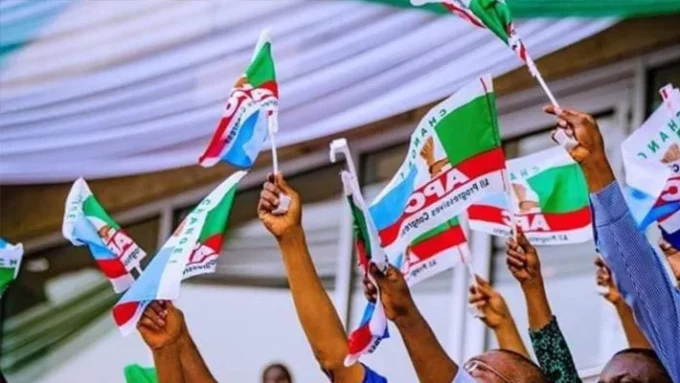By John Ogunsemore
Over the past decade, Nigeria has been plagued by a series of Ponzi schemes that promised astronomical returns but left millions of investors in financial ruin.
Driven by economic hardship, financial illiteracy, and lax regulations, these fraudulent schemes have collectively defrauded Nigerians of billions of naira.
With a 2023 Central Bank report pegging the financial literacy rate at 38 per cent, many Ponzi scheme operators use social media platforms like WhatsApp, Facebook and TikTok to amplify their reach and deploy testimonials to create an illusion of legitimacy.
Many Nigerians have continued to fall for these illicit schemes despite warnings from regulators like the Securities and Exchange Commission (SEC) and financial experts, who maintain that promises of high returns with little risk, unclear business models, and aggressive referral systems constitute red flags.
Daily Sun examines some of the most notorious Ponzi schemes in Nigeria’s recent history…
MMM Nigeria (2016)
The Mavrodi Mundial Moneybox (MMM), founded by Russian fraudster Sergei Mavrodi, is arguably the most notorious Ponzi scheme in Nigeria’s history.
Promising 30 per cent monthly returns through a peer-to-peer “donation” model, MMM attracted over three million Nigerians at its peak.
The scheme collapsed in December 2016, leaving millions stranded with estimated losses of ₦18 billion ($50 million at the time).
Despite warnings from government agencies like the SEC, its aggressive marketing and early payouts lured desperate investors, many of whom lost life savings.
The fallout led to widespread financial distress and pain. There were also unconfirmed reports of suicide cases due to the losses incurred by victims. Some individuals and families are still recovering today.
Twinkas (2016)
Twinkas existed in the same era as MMM but gained more prominence after the former’s collapse.
It promised participants double their investment within weeks through a referral-based model. Marketed as a “mutual aid” platform, it relied on new investors’ funds to pay earlier participants.
When recruitment slowed, Twinkas vanished, leaving thousands with worthless accounts and losses estimated in the billions of naira.
Its rapid rise and fall highlighted Nigerians’ vulnerability to schemes exploiting economic desperation.
Ultimate Cycler (2016)
Ultimate Cycler capitalised on MMM’s popularity, using a cycling model where participants paid to join and earned by recruiting others.
Promising quick returns, it lured thousands before collapsing within months.
The scheme’s opaque operations and lack of a legitimate business model led to significant losses, with many investors unable to recover their funds.
Its failure underscored the dangers of referral-driven schemes masquerading as legitimate investments.
MBA Forex (2018–2021)
In December 2021, the Economic and Financial Crimes Commission (EFCC) declared Maxwell Odum, Chief Executive Officer (CEO) of MBA Trading and Capital Investment, wanted over alleged N213 billion fraud.
Odum was the brain behind MBA Forex, which promised 15 per cent monthly returns through forex trading.
Targeting high-net-worth individuals with a minimum investment of $1,000, it defrauded Nigerians of approximately ₦213 billion ($500 million).
The scheme collapsed in 2021 amid economic pressures from the COVID-19 pandemic and regulatory scrutiny, leading to legal troubles for Odum.
Its scale made it one of the largest homegrown Ponzi schemes, accounting for nearly half of all Ponzi-related losses in Nigeria over a decade.
Galaxy Transportation and Construction Services (2019)
Marketed as a logistics and haulage firm, Galaxy Transportation promised to double investments within six months.
With aggressive promotion, the scheme attracted over 20,000 investors before crashing in 2019, with losses allegedly exceeding ₦7 billion.
Investors were left with worthless receipts, and the operators disappeared, exposing the risks of schemes posing as legitimate businesses.
Fortunately, the Economic and Financial Crimes Commission (EFCC) arrested Borno State-born businessman, Babagana Abba Dalori in April 2019 for masterminding the scheme.
Dalori and his company, Galaxy Transportation and Construction Services, were arraigned in June 2019 on multiple charges related to breach of trust and obtaining money by false pretence totalling N95,530,000.
The outcome of the case remains unclear.
InksNation (2020)
InksNation introduced “Pinkoin,” a fake digital currency it claimed would eradicate poverty.
Promising high returns through blockchain jargon, it lured investors before being shut down by the Securities and Exchange Commission (SEC).
On May 27, 2021, the EFCC arrested Amos Sewanu Popogbe, also known as Omotade-Sparks, in Sokoto for masterminding the scheme. The anti-graft commission had declared him wanted in November 2020 after several failed attempts to apprehend and question him over the crash of the scheme.
Pinkoin’s collapse left countless Nigerians financially devastated, with many unable to access their funds.
InksNation’s use of cryptocurrency buzzwords highlighted the evolving tactics of modern Ponzi schemes.
CBEX Global (2025)
The most recent scheme to implode, CBEX Global (also known as CBBE), promised up to 35% monthly returns, later escalating to an audacious 100% within 30 days.
Marketed as a digital asset trading platform, it vanished in early 2025, allegedly absconding with ₦1.3 trillion ($840 million).
The scheme’s collapse sparked outrage and chaos as irate victims stormed its offices in Ibadan and Lagos, carting away office equipment and furniture.
On April 25, the EFCC declared eight persons wanted for promoting the scheme. They were identified as Adefowora Olanipekun, Adefowora Oluwanisola, Emmanuel Uko, Seyi Oloyede, Johnson Okiroh Otieno, Israel Mbaluka, Joseph Michiro Kabera and Serah Michiro.
On May 1, a foreign national, Elie Bitar, was declared wanted by the anti-graft agency in connection with the scheme.
On June 4, the EFCC declared two more Nigerians, Folashade Odelana and Bamidele Ayodele Abiodun, wanted for their roles in the CBEX scheme.


















Leave a comment